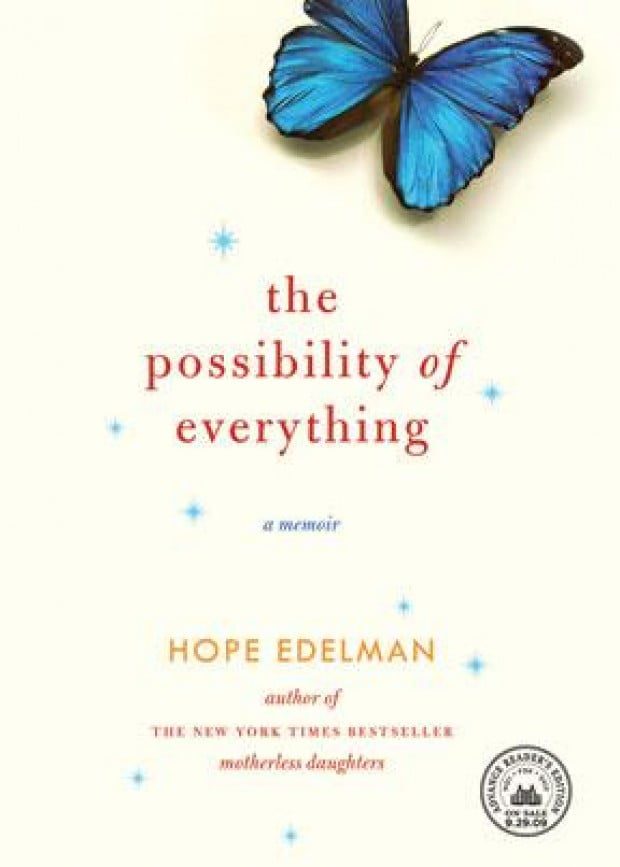Local author Hope Edelman’s attempt to cure her daughter of an unexplainable psychiatric ailment writes about her nontraditional spiritual healing experience in Belize.
By Melonie Magruder
Special to The Malibu Times
Any mother knows that the demands of motherhood draw on personal resources never fathomed before the advent of changing diapers and sleepless nights of colic. For one local author, teacher and mother, motherhood also shook up her most fundamental belief system and launched her on a spiritual journey that redefined her profession, her marriage and her cosmic sense of self.
Hope Edelman, New York Times best-selling author of five nonfiction books and Topanga resident, has just published “The Possibility of Everything” (Ballantine Books), her memoir of a life-changing trip to the Caribbean nation of Belize.
“When I started writing this book, I didn’t know if it would damage my career or my credibility,” Edelman said in a phone interview with The Malibu Times. “But turning 40 allowed me to believe that I could finally be, and do, whatever I wanted.”
Edelman’s 1994 book, “Motherless Daughters: The Legacy of Loss” was translated into seven languages and became an international bestseller. In it, she examines the grief and groundlessness of losing a mother at a young age (she was 17 when her own mother died of breast cancer).
“The Possibility of Everything” returns to her theme of mothers and daughters, place and purpose, and chronicles a profound spiritual awakening.
“In 2000, we took our first family vacation in several years to Belize,” Edelman said of her trip with husband, Uzi, and daughter Maya. “Partly it was because of their huge coral reef [Uzi is a diver] but we also wanted to seek out a Mayan healer we had heard about.”
When Maya turned three, she started talking about an imaginary friend, “Dodo,” who was with her constantly. At first Edelman, who had her own imaginary playmate at a young age, wasn’t worried. But Dodo’s influence seemed to grow more consuming.
“The content of her discussions about Dodo became unusual,” Edelman said. “Maya seemed to know things other three-year-olds didn’t know. There were other invisible friends who told her where they lived and some would ‘bother her.”
Alarmed at the specter of budding schizophrenia or unknown trauma, Edelman hit the Internet. Along with much Western interpretation of such phenomena in children, she found references to a thriving Mayan culture in South America that routinely “healed” children of unwanted spirits.
Being an admitted skeptic of such “hocus pocus,” Edelman found herself curiously drawn to the concept. They made plans to travel to Belize and visit an American woman there who had studied to become a shaman.
“When we first arrived, the resort director immediately suggested we see a bush doctor,” Edelman said. “It’s part of their culture. They accept as fact that children are closer to the spirit world than adults and they recommend a healing ritual if a child’s imaginary friend experience is negative.”
In fact, Maya had developed a persistent croup that would not respond to normal therapies and was beginning to insist that Dodo didn’t want her to get well. Edelman’s Nicaraguan nanny, accustomed to bush doctor rituals from her childhood, had already suggested a spiritual cleansing.
Edelman, firmly grounded in mainstream secular sensibility, was doubtful, but willing to explore other options. The family headed to Belize. There, they met with American-born Dr. Rosita Arvigo, who immediately prescribed a healing ritual involving herbs, incense and prayer.
“I had no mom or grandma to consult with on this,” Edelman said. “I was a completely skeptical New Yorker and had no idea why I was taking this wacky route. But the fact that I could perform the ritual myself told me it wasn’t me. It was something else. And it changed my life.”
Maya improved immediately. She no longer spoke of Dodo, dismissing him completely. That Edelman could not explain this experience in concrete, scientific terms rattled her to her core.
“Rosita had told me that we needed to heal the whole family,” Edelman said. “This made sense because I was already asking myself what role I played in all this. By the time we left for Belize, I was at a critical juncture in my marriage, largely due to the fact that my husband and I were on opposite psychic journeys. After our experience in Belize, I just let go of any connection to spiritual expectations.”
Darlene Rivas is a professor of Latin American studies at Pepperdine University and agreed that there is a bicultural acceptance of shamanism in the region.
“It’s quite a common theme,” Rivas said. “Indigenous peoples don’t really think of it as choosing between modern medicine and ancient practices. You go see a bush doctor for human health issues as well as problems with ants.”
Edelman’s experience also led her to an examination of Mayan culture, with their ancestor worship and naturopathic healing traditions. She decided to write a book about the trip and her discoveries, returning several times to fact check and, ultimately, to establish an educational support program in the village of San Antonio.
“Belize is ethnically rich, although very poor economically,” Edelman said. “But they have strong family ties, reverence for parents and a cultural identity that respects phenomena they can’t easily explain. I went to Belize thinking I live in the richest country in the world. Now, I think differently.”
“The Possibility of Everything” is available at Amazon and major bookstores. Hope Edelman will read selections from her book at Diesel, A Bookstore in Malibu Sept. 29 at 7 p.m.

